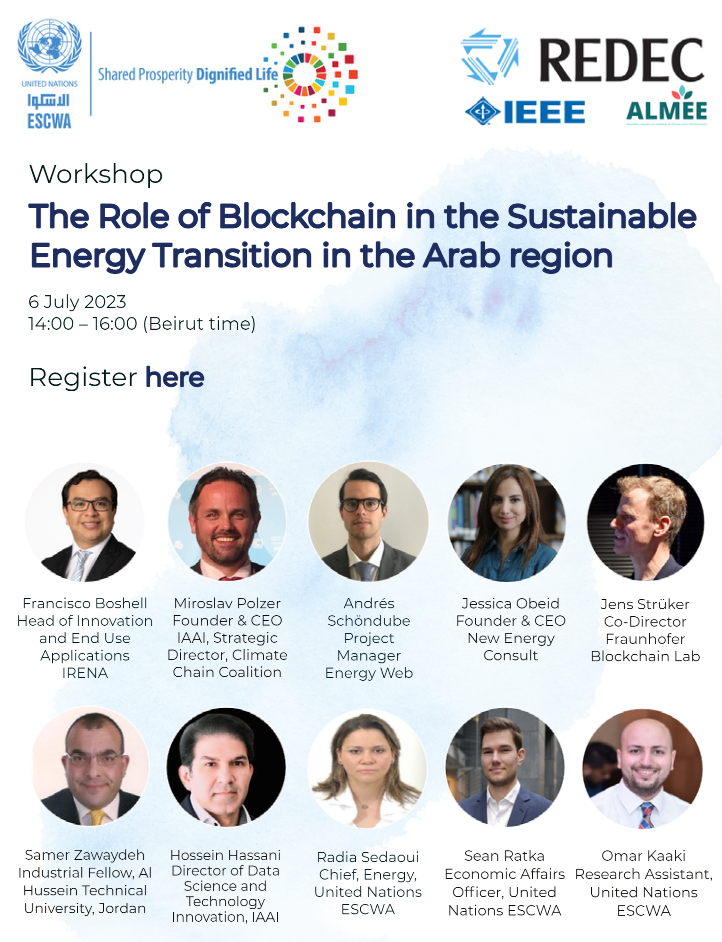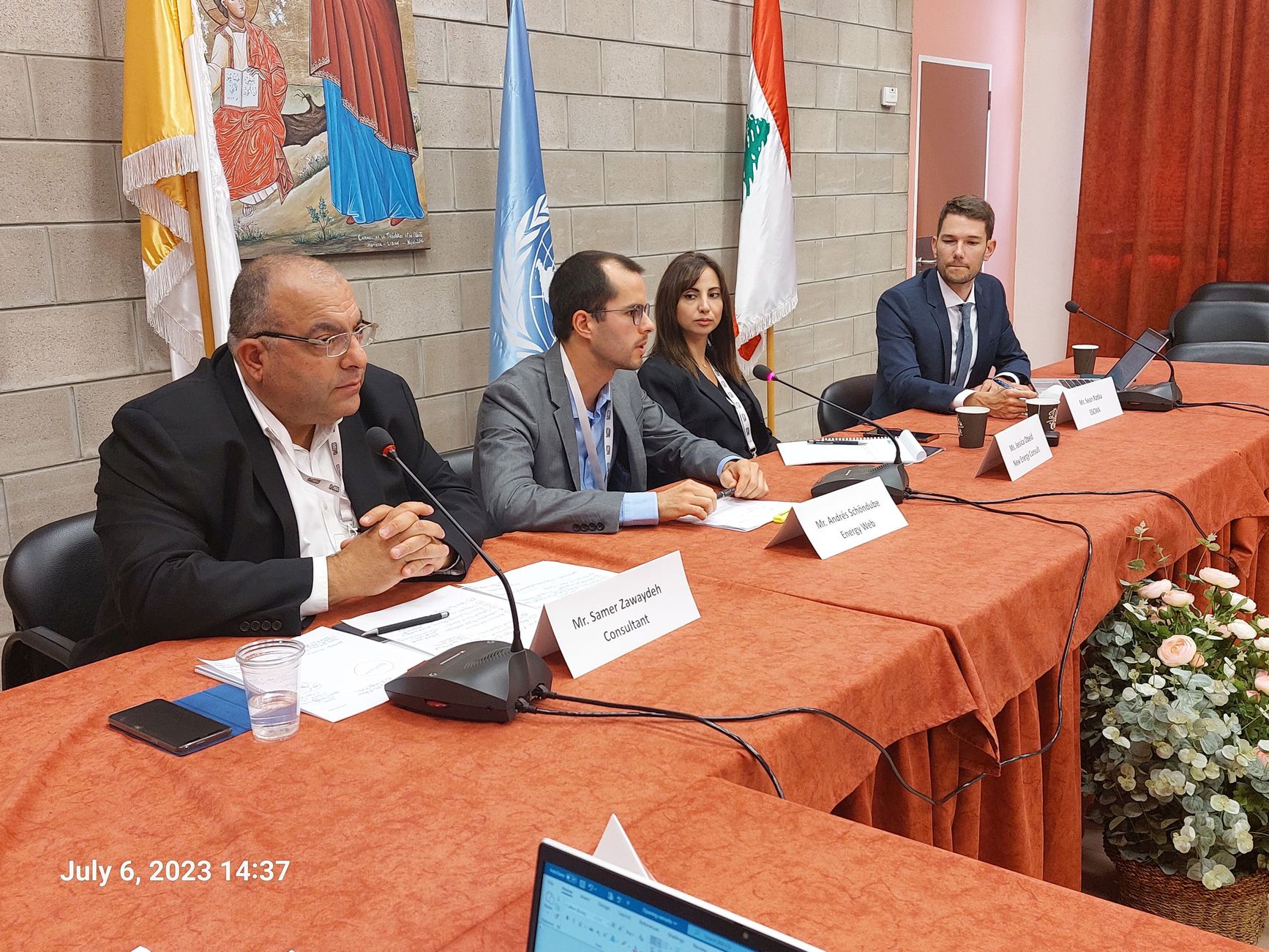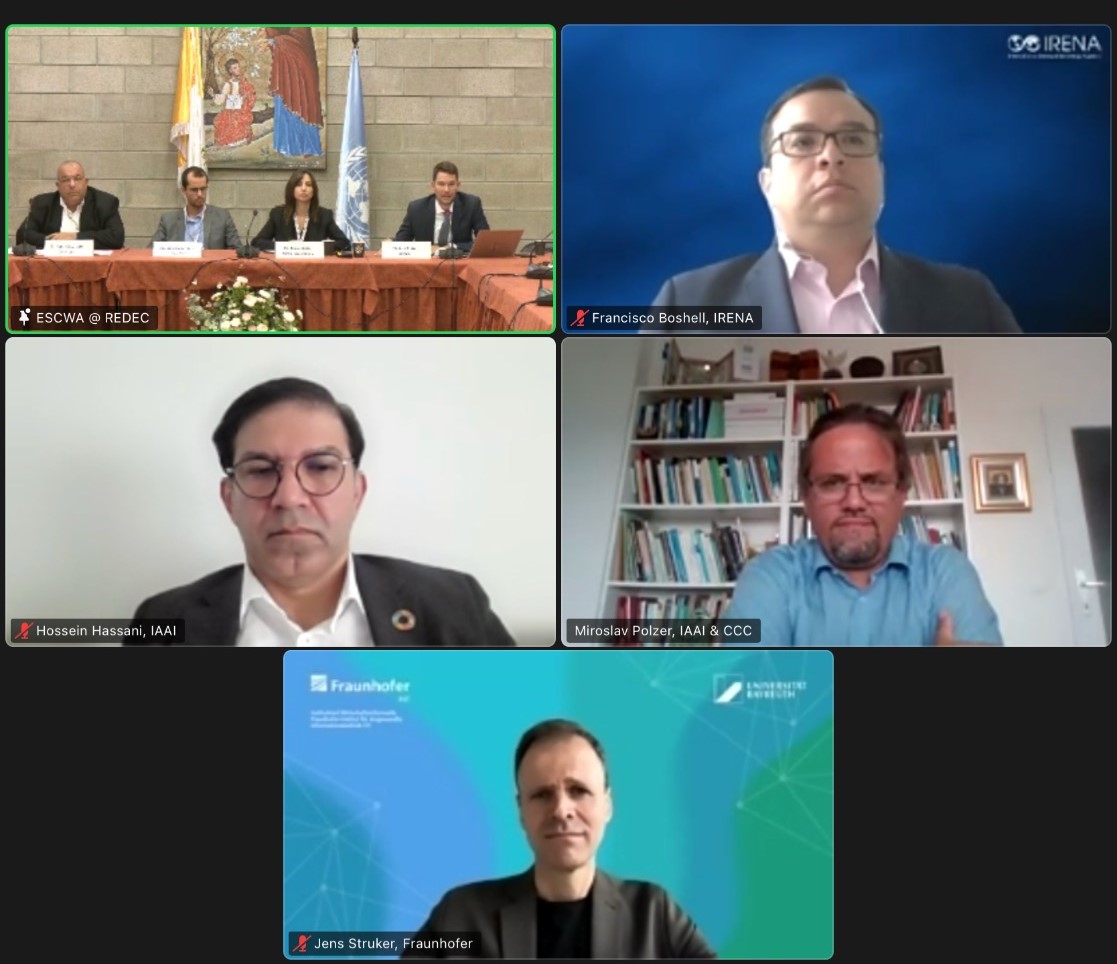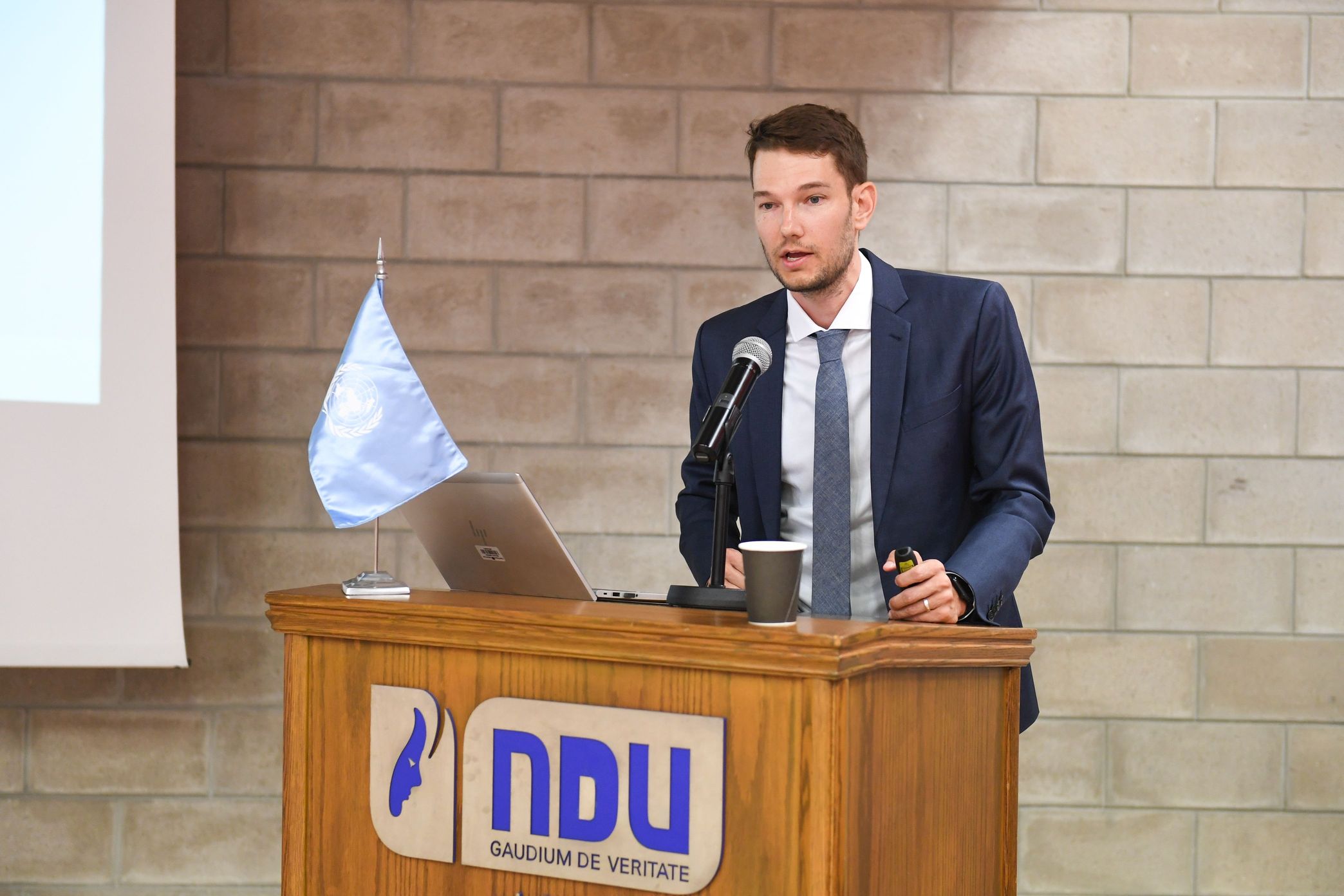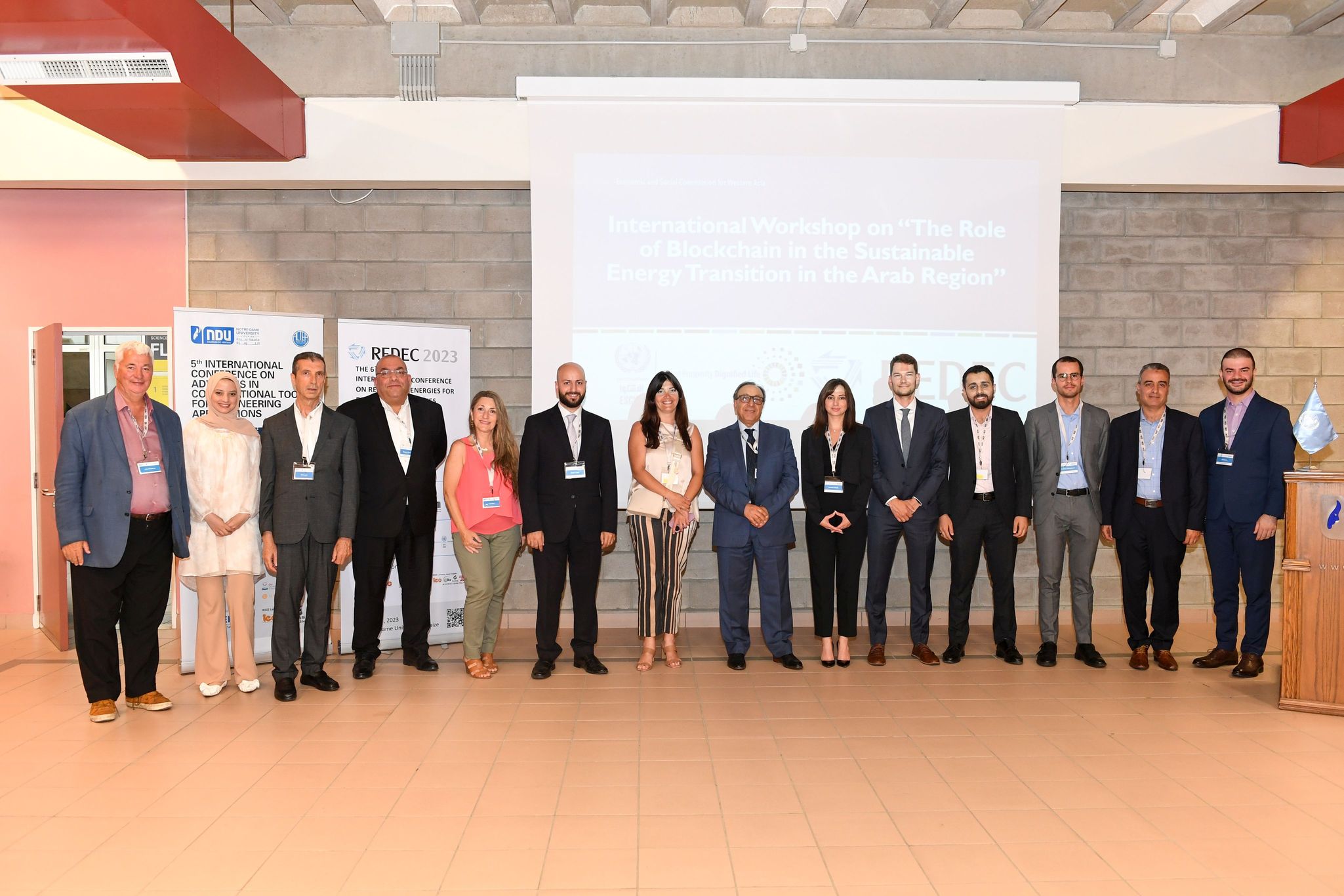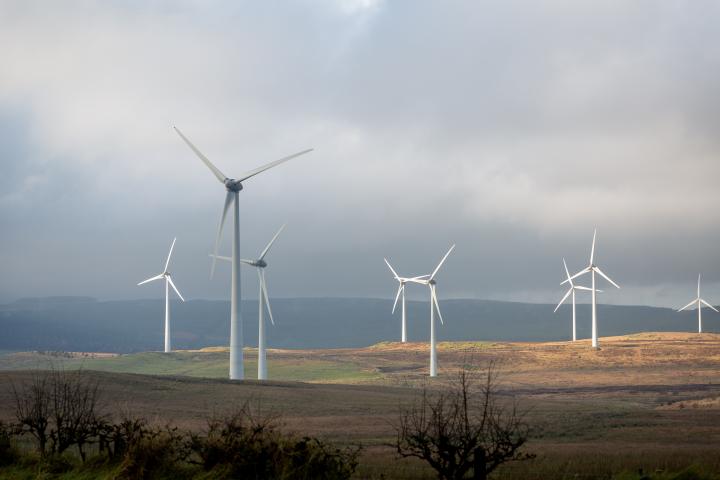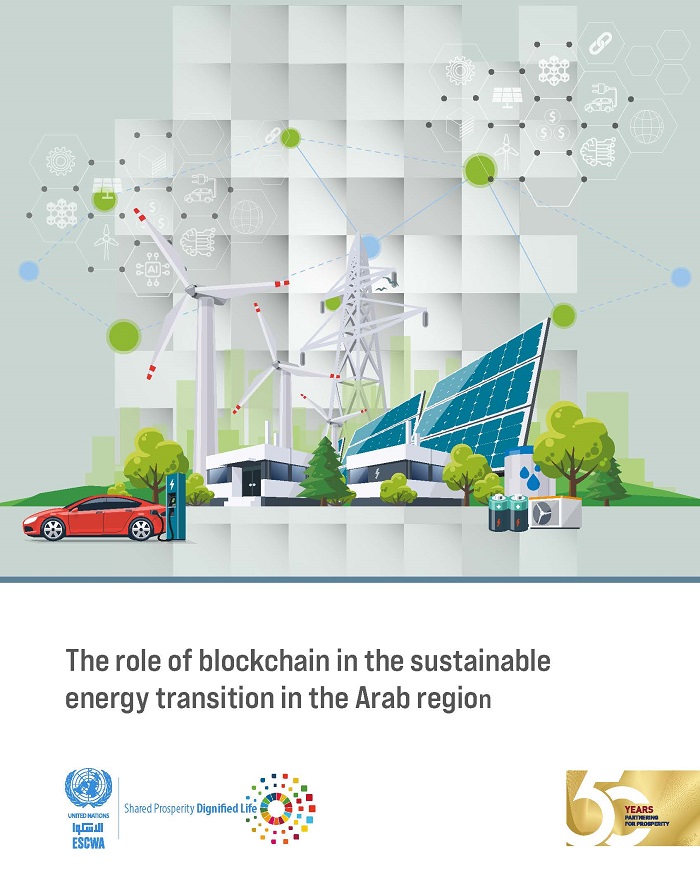Under the framework of the International Conference on Renewable Energies for Developing countries (REDEC), ESCWA is organizing, in partnership with the Institute of Electrical and Electronics Engineers (IEEE) and the Lebanese Association for Energy Saving & for Environment (ALMEE), a workshop on the role of blockchain in the sustainable energy transition in the Arab region. The workshop aims to tackle the role of blockchain technology in enabling and accelerating the just, inclusive and sustainable energy transition in the Arab region. The conclusions and recommendations of a forthcoming ESCWA technical paper on the topic are also discussed.
ESCWA’s scene-setting presentation covered the following topics ahead of the panel discussion:
- What is blockchain?
- What role can it play?
- Select use cases from the Arab region and globally
- Challenges to adoption and implementation in the region
- Conclusions and recommendations from ESCWA’s upcoming technical paper
